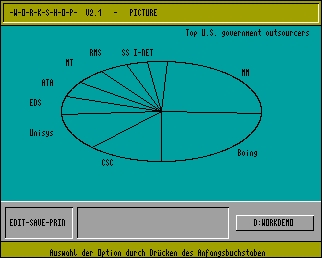CFOG's PIP, March 1989, Volume 8 No. 1, Whole No. 69, page 5
Cache Programs: They Are Great, But Be Careful
by Bob Lay
[Reprinted with permission from the January 1989 issue of Q Bits, newsletter of the Quad Cities All Computers User's Group. Bob and Delores Lay are the editors of Q Bits.
Cache, or cache buffer, as this poor CP/M user understands it, refers to a program which sits in high memory, a TSR or RAM resident program, and keeps track of your activity, and throws the programs and data that you are using into memory as if it were a RAM disk. Then when you call these programs or data again, the program or data is called from the memory cache, instead of from the disk. This speeds up hard disk operations noticeably, and floppy disk systems benefit even more. If I'm wrong in concept or details someone will have a rebuttal here next issue, I'm sure! -- bhc]
This a tale with TWO morals. When we got our laptop MS-DOS computer last spring, the first set of utility programs I bought was the superb and bargain-priced PC-Tools Deluxe Version 4.2. One of the included utilities was PC-Cache, and I stared using it to cache about 128k of my 640k base memory to speed things up a bit, and it seemed to work okay on this floppy disk only system.
I also installed PC-Cache on Delores' desktop system (which has a 40Mb hard disk and 512k of additional memory above the 640k base memory, installed as extended memory), allocating all the extended memory as a cache buffer.
One August day Dolores was working at her system and suddenly everything went haywire. Attempts to reboot from Drivc C: proved fruitless. We rebooted from A: (the floppy) and took a look around. Every file in her root directory had been deleted, including DOS's two hidden files. We were able to recover kjdm all using PC-Tools undelete function, but it took about an hour, and considerable fretting trying to figure out what had happened.
In the October FOGLIGHT, on page 20, was published an article by Robert Bobs about some problems with PC-Tools, with a caveat by Gale Rhoades and Jack Brown of the FOG office stating they had numerous reports of hard disk corruption from people using PC-Cache. At about the same time QC-ACUG member Brian Gillette told me the FAT on his drive C scrambled several months ago and he suspected the PC-Cache he had been using and switched cache programs.
Being your basic slow-learner, I paid no attention and left the cache active on Delores' system and went merrily on my way until I bought my new AT at the end of November. The memory on my system is configured the same way as Delores' machine (640 base, 512 extended.)
[Let me spare you the gory details -- suffice it to say that after spending three days setting up his new system and making a backup, four hours later Bob got to use his backup. -- bhc]
Incidentally, if you ever suspect a problem and run CHKDSK to look things over, use DOS's redirection as follows:
CHKDSK > TROUBLE<cr>
Then you'll have a disk file called TROUBLE with all the results of running CHKDSK (that would normally be seen on the screen) available in an ASCII disk file. You can study the results and keep them as a permanent record (that, we hope, you'll never need again).
The two morals? Believe at least some of what you read and hear (i.e., DON'T use PC-Cache, period) and DO make regular backups. There are probably other morals in here as well, but I just don't want to talk about it anymore!

